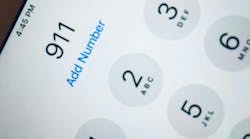It’s unbelievable that we are still having this discussion. I would like to say that this issue is in the past that it moved beyond itself quickly because of its ridiculous nature. But, alas, I suppose it is like so many things that surround being a public safety telecommunications operator in the fact this has to be debated in committee after committee and that some people truly feel like the current status quo is perfectly legit. What am I talking about? Classification.
In 2014, the Office of Management and Budget (OMB) began its consideration of changes to the Standard Occupational Class (SOC) of its comprehensive list of jobs used by the federal government for statistical purposes. Currently, on the list, public safety telecommunicators, the first first responders are classified as “Office and Administrative Support” unlike field responders who are classified as, “Protective Service Occupations.” When the consideration came up, which only happens every ten years, we, as professions figured it would be a no brainer to get us changed into the right category. Right? Wrong. Even thought APCO filed comments backed by a number of supporters, in July 2016, OMB announced revisions including the rejection of our reclassification. Like what we face over and over when we ask for a “public safety” discount and are told we don’t count, we found ourselves, once again, fighting for recognition as imperative public safety professionals. But wait, don’t we sit at a desk in front of a computer screen answering the phone just like a secretary or receptionist? Well, I suppose we do, but wouldn’t it be more fun to look at a comparison? Here are five ways public safety telecommunicators differ from office/administrative support.
1. People kill themselves on the phone with us. I guess I can’t say for sure that this has never happened to a receptionist. After all, humans are volatile creatures. What I can say is that I don’t know one 911 Dispatcher that hasn’t had at least one person commit suicide after calling up, talking to them for a minute or several hours then end their life. No matter how resilient you are, this, “I was the last person on earth that person spoke with,” feeling will stay with you forever.
2. Mandatory staffing. Although there are certain times where everyone on a project has to buckle down, settle in and burn the midnight oil to complete a task, this isn’t a 24 hour a day, 7 day a week, 365 day a year thing. For us, it’s been our reality for years. Chronically understaffed across the country, public safety telecommunicators routinely work more than 40 hours a week. They have to. Can you imagine the public outcry if 911 phones went out of service because all the operators had already done their time? Someone HAS to be there for the phones and the radio. Being ordered to stay beyond a 10 hour day or to come in on your scheduled day off is a way of life not a unique situation celebrated with champagne and a four day weekend at the end.
3. Whims of change. We are at the mercy of memos, policy changes, and especially the political hot topic of the week. Some “important” person has a specific thing happen or a tragedy occurs and politicians jump on a bandwagon of change and we adjust the way we do things. Do it this way for a month and then the winds of change occur and now something else is super important. Now do it that way. It’s hard to keep track. But how is this different than the changing focus of management that gets handed down to administrative staff? We’re dealing with juggling life and death not different letterhead.
4. Highly trained professionals. I by no means want to disparage the typing pool, but for the most part administrative support, even for the government doesn’t require much in the realm of qualifications. A high school diploma or equivalent and computer skills. That seems to be the extent of an entry level administrative job. After hire they do some on-the-job training to learn how to organize files, prepare documents, schedule appointments, answer the phone, and support other staff. The hiring process for 911 Dispatchers: 1) High school diploma or equivalent. 2) Pass a written test. 3) Pass a skills test. 4) Pass a panel interview. 5) Pass an extensive background test. 6) Pass a psychological test. 7) Pass a drug screen and medical test. 8) Pass a polygraph, in some places. 8) Successfully complete classroom instruction including memorizing a million codes, locations, designators and policies and procedures. 9) Successfully complete floor training handling actual life or death emergencies working every shift, every day of the week. 10) Pass EMD training, if applicable. I’m not really seeing many similarities between the two occupations.
5. Traumatic stress. Screaming. Death. Injury. Emotional pain. Grief. Accidents. Kidnappings. Shootings. Rape. Suicide. You name it. We’ve dealt with it. The people who call 911 are having the worst day of their lives and we are intimately a part of it. When on the radio, we get amped up when the officers, fire fighters or EMS personnel get amped up. You don’t hear it in our voices because we are trained professionals but that doesn’t mean our minds and bodies don’t react. Cortisol and adrenaline spike, but we are just sitting there. We keep all of these pieces of broken lives within us and it takes a toll. Not all 911 Dispatchers acquire PTSD, but all have traumatic stress. I’m sure secretaries have environmental stressors but their list pales in comparison.
I could go on and on with the comparisons: our tape pullers transcribe chaos not meetings, in every call and radio transmission we’re scanning for danger which means death, we face anger, hate and discontent, our records are scrutinized in the media, and we face legal liability for the split second decisions that we make. We are not office and administrative support. We are first responders. We deserve to be classified as such. OMB will make their final recommendations
soon. Go to APCO and see what you can do to continue the fight for our right to be identified as what we are—protectors.
Web Links:
Michelle Perin worked as a police telecommunications operator with the Phoenix (AZ) Police Department for eight years. She has an M.S. in Criminology and Criminal Justice from Indiana State University and writes full-time from Eugene, Oregon. For more information, visit www.thewritinghand.net



